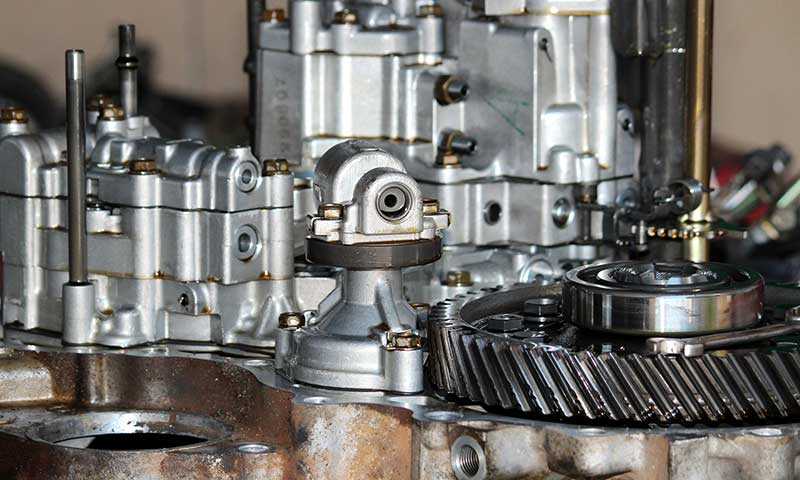At All Around Auto Repair, we understand that the differential is one of the less discussed yet vitally important components of your vehicle. It’s essential for providing your wheels with the ability to rotate at different speeds, especially crucial when turning. Proper maintenance of this component ensures your vehicle operates smoothly and efficiently. Today, we delve into the intricacies of car differentials, exploring their types, how to maintain them, and why they’re so important for your vehicle’s performance.
The Role of a Differential
Before we explore the types and maintenance tips, let’s understand what a differential does. Located between the driving wheels of your vehicle, the differential has three main jobs: to aim engine power at the wheels, to act as the final gear reduction in the vehicle, slowing the rotational speed of the transmission one final time before it hits the wheels, and to transmit power to the wheels while allowing them to rotate at different speeds.
Types of Differentials
Understanding the different types of differentials can help you appreciate the complexity of what goes on underneath your vehicle.
- Open Differential: This is the most common type found in cars. It allows each wheel to rotate at different speeds, which is necessary when turning corners. However, it can be less effective in slippery conditions because if one wheel loses traction, it can spin freely, with the differential sending all power to this wheel, reducing overall traction.
- Limited-Slip Differential (LSD): An LSD is designed to overcome the traction issue of open differentials by ensuring that if one wheel starts to spin freely, some power is still directed to the wheel with more traction. This type is popular in performance and off-road vehicles because it offers better handling and traction.
- Locking Differential: This type can lock the rotation of both wheels on an axle together, forcing them to turn at the same speed. This can be incredibly useful in off-road conditions but is not suitable for regular road driving as it can cause tire wear and strain on the vehicle.
- Torque-Vectoring Differential: The most technologically advanced option, torque-vectoring differentials, can dynamically distribute power to individual wheels based on driving conditions, improving handling and traction dramatically.
Maintenance Tips
Maintaining your vehicle’s differential is crucial for its longevity and performance. Here are some tips to ensure it stays in top condition:
- Regular Fluid Checks and Changes: Differential fluid lubricates the gears and bearings inside the differential, preventing overheating and wear. Check the fluid level regularly and look for signs of contamination or metal particles, which could indicate internal wear. Fluid changes are typically recommended every 30,000 to 60,000 miles, but consult your vehicle’s manual for specific recommendations.
- Listen for Noises: Any unusual noises coming from your vehicle’s differential, such as humming, whining, or clunking, could indicate problems. These sounds may signify that the differential fluid is low or that there’s wear and tear on the gears or bearings.
- Inspect for Leaks: Keep an eye out for leaks around the differential housing. Leaks can lead to low fluid levels, which can cause significant damage if left unaddressed.
- Professional Inspections: Even with diligent maintenance, it’s a good idea to have your differential inspected by professionals like us at All Around Auto Repair periodically. We can identify issues that aren’t obvious to the untrained eye and provide preventative maintenance to avoid future problems.
The Importance of Differential Maintenance
Neglecting differential maintenance can lead to a range of problems, from reduced fuel efficiency and vehicle performance to more severe issues like differential lock-up, which can be dangerous. Regular maintenance helps ensure that your vehicle remains reliable, performs well under all driving conditions, and has a longer lifespan.
The differential is a key component of your vehicle’s drivetrain, critical for smooth handling, efficient power transfer, and overall performance. Understanding the different types of differentials and their maintenance needs can help you keep your vehicle running smoothly and efficiently. At All Around Auto Repair, we’re committed to providing you with the knowledge and services needed to maintain every part of your vehicle, including the differential. Remember, regular maintenance is not just about preventing problems; it’s about enhancing your driving experience and ensuring your safety on the road. Whether you’re cruising on the highway or navigating challenging terrain, a well-maintained differential makes all the difference.


